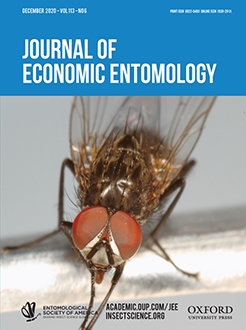The nutritional status of host plants can have direct impacts on herbivore physiology and insect–plant interactions. We investigated the effect of micronutrients, including manganese, iron, zinc, and copper, on cucumber plant physiology, and on the biology and physiology of a strain of Aphis gossypii Glover selected over 12 generations to be resistant to pirimicarb. The micronutrient treatment increased the activity of superoxide dismutase, ascorbate peroxidase, guaiacol peroxidase, polyphenol oxidase, and phenylalanine ammonia-lyase in cucumber plants, and also increased levels of total phenolics, hydrogen peroxide, salicylic acid, and total chlorophyl, whereas malondialdehyde levels were unaffected. Pirimicarb-resistant cotton aphids that fed on micronutritient-amended cucumber plants expressed significantly decreased levels of acetylcholinesterase and detoxifying enzymes, specifically glutathione S-transferase, and carboxylesterase. Analysis of energy reserves in resistant A. gossypii fed on micronutritient-amended plants revealed decreases in the lipid and protein contents of aphids, whereas glycogen and carbohydrate contents showed no response. Resistant cotton aphids fed on micronutritient-amended plants showed significantly reduced fecundity, longevity, and reproductive periods, and a 1.7-fold reduction in pirimicarb LC50 compared with those fed on control plants. We conclude that micronutrient amendment negatively impacts the biological performance of insecticide-resistant cotton aphids, and diminishes their resistance to pirimicarb. Both direct effects on plant health, such as enhanced inducible defenses, and indirect effects on aphid fitness, such as reduced biological performance and detoxification abilities, were implicated. Therefore, optimization of micronutrient amendments could be a useful complement to other tactics for managing insecticide-resistant A. gossypii on cucumbers, and warrants exploration in other contexts.
How to translate text using browser tools
23 September 2020
Micronutrient Fertilization of Greenhouse Cucumbers Mitigates Pirimicarb Resistance in Aphis gossypii (Hemiptera: Aphididae)
Mohammad Homayoonzadeh,
Mojtaba Esmaeily,
Khalil Talebi,
Hossein Allahyari,
Jamasb Nozari,
J.P. Michaud
ACCESS THE FULL ARTICLE
It is not available for individual sale.
This article is only available to subscribers.
It is not available for individual sale.
It is not available for individual sale.
insecticide resistance
metabolic detoxification
plant defense





